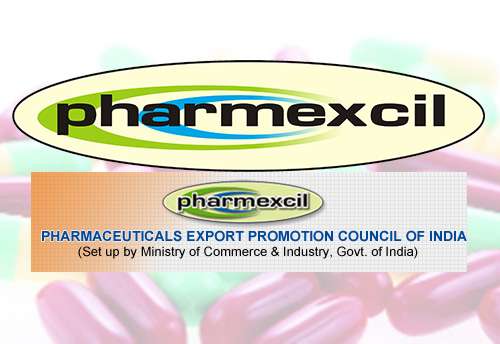Africa’s growing pharmaceutical needs and its rising stature as a strategic export destination for Indian generics took center stage during a high-level familiarization visit hosted by the Pharmaceuticals Export Promotion Council of India (Pharmexcil). The 28-member media delegation from Eastern and Southern Africa, visiting under the aegis of the ministry of external affairs (MEA), received a deep dive into India’s pharma capabilities and its expanding footprint across the African continent.
The session held recently at Pharmexcil’s regional office in Mumbai, was led by Rollins John, director, and Sumantha Chaudhary, adviser to Pharmexcil. The visit aimed to foster a better understanding of India’s pharmaceutical export ecosystem and promote sustained engagement with African media stakeholders.
Rollins John spotlighted Africa’s pivotal role in India’s pharmaceutical export strategy, citing sustained demand growth driven by increased healthcare access, affordability of Indian generics and robust bilateral trade frameworks. He noted that between 2010 and 2016, pharmaceutical exports to Africa witnessed remarkable growth, fueled by competitive pricing and a collaborative approach to public health challenges.
Sumantha Chaudhary further reinforced this view, sharing insights from April 2025 trade data that indicate a positive recovery trajectory in several African markets post-pandemic and amid renewed health sector investments. These trends, he emphasized, validate the long-term potential of Africa as a dependable and expanding export market for Indian drug manufacturers.
The visit offered a scenario of India’s pharmaceutical ecosystem, renowned globally for its high-quality generics, strong manufacturing infrastructure and regulatory competence. The delegates were briefed on India’s export performance in Africa, the ongoing efforts at regulatory harmonization and mechanisms that facilitate smoother market access.
Key highlights included India’s emergence as the “Pharmacy of the World,” particularly for developing nations, regulatory collaborations that reduce time-to-market for essential drugs and institutional frameworks supporting Africa’s pharmaceutical capacity-building.
The session also included an overview of the upcoming Bharat Health Global Expo 2025, positioned as a premier international platform to enhance visibility and foster partnerships across continents. Journalists actively engaged in discussions around market entry challenges, local regulatory nuances and the critical need for harmonized standards to streamline pharmaceutical imports into Africa.
The delegation also participated in a courtesy meeting with key officials from the Department of Pharmaceuticals (DoP), including Amit Agrawal, secretary and Palka Sahni, joint secretary. The interaction underscored India’s commitment to strengthening pharma ties with African nations through sustained government engagement and policy-level alignment.
Senior leadership from Pharmexcil, including chairman Namit Joshi, vice chairman Bhavin Mehta, and director general Raja Bhanu, extended formal invitations to the delegates for iPHEX 2025.
The concluding deliberations emphasized the importance of regulatory coherence and reducing high distribution costs, which remain significant barriers to affordable and timely access to medicines in several African countries. Officials advocated for deeper institutional and governmental cooperation to address these challenges, fostering an environment where Indian pharmaceutical exports can deliver sustainable value while contributing meaningfully to Africa’s healthcare outcomes.
“Pharmexcil reaffirmed its long-term vision of forging deeper ties across Africa through joint ventures, technology transfers and aligned health policies, thereby building a mutually beneficial framework for global public health,” informed an official.
“This familiarization visit marked an important milestone in deepening India-Africa pharma relations. With Africa’s demand for quality, affordable medicine on the rise, India stands ready as a trusted partner, offering both capability and commitment. The groundwork laid through this engagement is set to pave the way for stronger trade, enhanced healthcare infrastructure and shared growth across continents,” remarked a senior official associated with the development.


